I'm having a weird problem with timers. As long as I know, the interval property of a timer indicates the delay between loops in which the timer_Tick event will be fired.
I had this problem with the exact signature (15 and 16 milliseconds delay) before while programming in Visual Basic. Any timers that I create, fire their tick event with 15 or 16 milliseconds delay. For instance, if I set the interval of my timer to 1 (which means its tick event should get fired 1000 times in 1 second), the event instead gets fired 62 to 66 times in 1 second (that's 1000/16 to 1000/15).
I've been developing VB applications since 5 years ago and always had this problem (that also means I had this problem on several different systems with both AMD and Intel processors), and now I'm having it again with C#.
I'd managed to do a workaround and solve this problem by calculating the time difference between each time the tick event gets fired based on TickCount method (GetTickCount API in VB and Environment.TickCount in C#).
*TickCount is the amount of milliseconds passed since the time system had started.
To understand the problem better, I created a windows application that counts the seconds since it gets executed (like a timer). It relies on both TickCount and ordinary addition on each time the Tick event gets fired. It also calculates the delay of the timer by subtracting the last value of TickCount from the current value of the TickCount (if the timer would have been fired 1000 times in 1 second truly, then the difference of the TickCounts would be 1 each time, thus meaning there's no delay, but if the difference is more than 1, then there is some delay between each times the timer's tick event gets fired).
Here's the code:
public partial class Form1 : Form
{
int localTime = 0, systemTime = 0, baseSystemTime = 0, lastSystemTime = 0;
public Form1()
{
InitializeComponent();
}
private void timer1_Tick(object sender, EventArgs e)
{
// Calculate time based on TickCount
if (baseSystemTime == 0)
baseSystemTime = Environment.TickCount;
systemTime = Environment.TickCount - baseSystemTime;
label2.Text ="System Time: " + ((systemTime / 1000) / 60).ToString() + ":" + ((systemTime / 1000) % 60).ToString();
// Calculate time based on timer1_Tick
localTime++;
label1.Text = "Application Time: " + ((localTime / 1000) / 60).ToString() + ":" + ((localTime / 1000) % 60).ToString();
// Calculate the delay
if (lastSystemTime > 0)
{
label3.Text = "Delay: " + (Environment.TickCount - lastSystemTime).ToString() + " ms";
}
lastSystemTime = Environment.TickCount;
}
}
I've also uploaded the whole solution here: http://ramt.in/test/TimerDelay.zip
Here's a screenshot of the application (with 15 milliseconds delay and 1 second counted by application while 17 seconds have actually passed!):

The solution is only 50kb, so feel free to download it and run it to see if you get the same result as me. If it's the same, then there's something wrong with the timer class in Microsoft world!
But more importantly, if anyone knows anything about what might cause this delay, please share your knowledge with me.